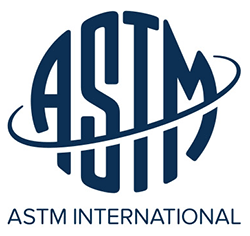What is the full form of ASTMASTM: American Society for Testing and MaterialsASTM stands for American Society for Testing and Materials. At present, it is known as ASTM International (ASTM). It is an international standards organization that develops and publishes consensus standards and is one of the world's largest international standards-developing organizations. 
ASTM was established in 1898 under the name of the American Section of the International Association for Testing Materials. It is headquartered in West Conshohocken, Pennsylvania. Furthermore, it came into existence before many other standards organizations such as the BSI (1901), IEC (1906), DIN (1917), ANSI (1981), AFNOR (1926), and ISO (1947). Furthermore, it has a committee of relevant industry professionals who meet regularly in an open and transparent process to develop ASTM standards for a wide range of materials, products, services, and more. Today, it has over 12,000 ASTM standards, which are used globally. These standards are meant to improve the lives of people as they are combined with the innovative business services of ASTM. Thus, it enhances performance and helps people buy and use products with confidence. ASTM International Standards are divided into six categories:
The 12,000 international standards that ASTM has created are influenced by the technical knowledge of its 30000 members from 125 different nations. These international standards apply to a variety of industries, including those involving metals, paints, plastics, textiles, petroleum, construction, energy, the environment, consumer goods, medical services, and electronics. Creation of StandardsThe open process by which ASTM standards are created is one of the reasons why many and such a broad range of companies have finished their different standards development work within ASTM International. Participants in the ASTM system come from all around the world because it rewards technical proficiency rather than nationality. Nearly 50% of ASTM standards are distributed outside of the United States due to the high degree of technical quality at its core. ASTM International leverages online technologies that promote open involvement and responsiveness to industry needs in order to permit widespread worldwide input. Online voting, electronic records and formats, online meetings, and advanced dissemination strategies are among them. Internet-based Standards Development Forums that are accessible 24/7 around the world are also included. ASTM International servicesIn addition to this welcoming environment for standards development, ASTM International offers services that increase the understanding and use of standards. Symposia, proficiency testing programmes, publications in a range of formats, and technical training courses are some of ASTM's programmes. Standardization News, a monthly journal published by ASTM, focuses on the global development of standards. Implementation of standardsAround the world, research and development, quality management, product testing and acceptance, and business transactions all rely on ASTM International standards. They are crucial elements of the aggressive corporate strategies of today. Annual ASTM BookThere are eight volumes in the Annual Book of ASTM Standards for Steel. It includes officially recognised ASTM standard language, test techniques, classifications, guidelines, procedures, specifications, and other related information.
Next TopicFull Forms List
|
 For Videos Join Our Youtube Channel: Join Now
For Videos Join Our Youtube Channel: Join Now
Feedback
- Send your Feedback to [email protected]
Help Others, Please Share










